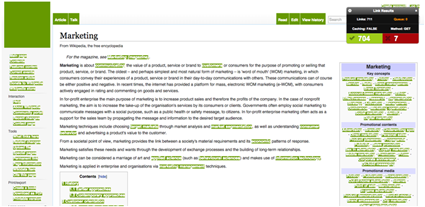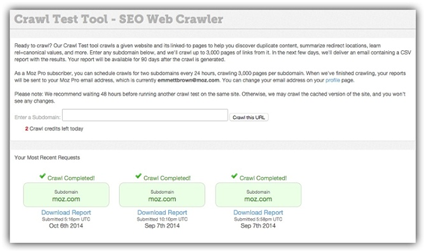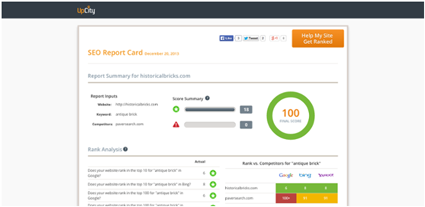Blog
Follow the latest thinking from people working at the cutting edge of innovation and have your say on everything from economic policy to robot overlords.
Tools to Analyze Your Website
by Tayyab
Posted on

Tools to Analyze Your Website for Adapting to Google Algorithm Updates
Tools to analyze your website can be essential in navigating the often perplexing world of Google algorithm updates.
There’s nothing quite like a sudden update to leave internet marketers feeling equal parts confused and concerned. It’s like they wait for you to get all of your ducks in a row and then unleash an update that changes everything. By leveraging these tools, you can better understand how these changes impact your site’s performance and adjust your strategy accordingly.
These tools are critical to your organic search strategy because they allow you to focus on the elements of your site that Google deems important.
5 Essential Website Checker Tools to Audit and Improve Your SEO
1) Google Webmaster Tools
Cost: Free
Perhaps the best way to understand the way Google sees your site is to ask Google. Google’s Webmaster Tools are novice-friendly resources that explain the fundamentals of Google search.
For example, Google’s Fetch as Google tool allows you to see a particular URL as Google sees it, which is critical when troubleshooting for poor SEO performance.

Each week users are allotted 500 fetches. If you come close to hitting your limit, you’ll see a notification on the report.
Another great feature of Google Webmaster Tools is PageSpeed Insights. This tool measures the performance of both your desktop and mobile site in terms of speed. With mobile search queries surpassing desktop searches, page speed is becoming increasingly important to businesses that want to hold on to their visitors.
“The PageSpeed Score ranges from 0 to 100 points. A higher score is better and a score of 85 or above indicates that the page is performing well.
.
2) Check My Links
Cost: Free
tools to analyze your website to ensure that your links on a webpage – whether external or internal – actually work, check out Check My Links.
This broken link checker makes it easy for a publisher or editor to make corrections before a page is live. Think about a site like Wikipedia, for example. The Wikipedia page for the term “marketing” contains a whopping 711 links.
Not only was Check My Links able to detect this number in a matter of seconds, but it also found (and highlighted) seven broken links.

The tool highlights all the good links in green, and those that are broken in red, making it easy to spot the ones that don’t work or are no longer active.
3) Moz Pro Tools
Cost: Free 30-day trial, then paid plans from $99/mo – $599/mo

This is super helpful if you’re looking to identify crawlability factors such as duplicate content and redirects that could be influencing your SEO performance.
4) SEO Report Card
Cost: Free
SEO Report Card by UpCity lets you analyze your website to determine how it stacks up against your competitors.

In exchange for a bit of your contact information, SEO Report Card will serve up a report that covers the following:
- Rank Analysis. A snapshot of where your website ranks on Google, Yahoo, and Bing! Your ranking is based on the main keyword you selecting when putting information in to build the report.
- Link Building. A detailed account of the number of websites that link back to your site.
- On-Site Analysis. A look at how successful you were in incorporating your main keyword throughout your site.
- Website Accessibility. A section focused on your site’s load time and ease of accessibility for crawlers.
- Trust Metrics. An overview of your site’s level of trust or authority.
- Current Indexing.
5) HubSpot’s Website Grader
Cost: Free
Back in 2007, HubSpot released a tool called Website Grader that helped businesses uncover search engine optimization opportunities. Since a lot has changed since then, they recently released a new and improved version of the tool.

Website Grader is an online tool that generates personalized reports based on the following key metrics:
-
- Performance. They look into your site’s page size, requests, speed, and then some.
- Mobile Readiness. They check to see if your website is mobile-friendly in terms of responsiveness and viewport settings.
- SEO. They determine if your website is easy to find — by both humans and bots. This determination will take factors like page titles and meta descriptions into consideration.
- Security. They look for things like an SSL certificate. This serves as a way to prove to visitors that your site is both authentic and safe for contact information submissions.
All you need is your website URL and an email address to get started. Simply plug in your information and you can expect a score (1-100) as well as a detailed report in just a matter of seconds.
Getting Started
While you’ll never get a look behind the Google curtain to learn everything they know (or don’t know) about your site, by leveraging SEO best practices and getting the most out of tools like those listed here, you can greatly increase the chances that your website will show up in response to the right search queries.
